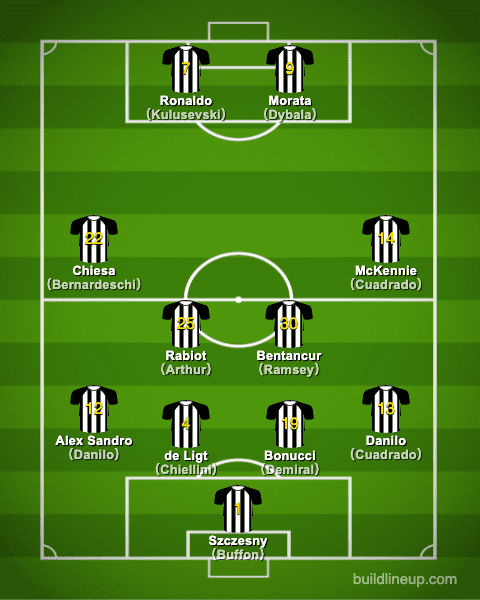Recent speculation from Italian media has sparked an intriguing tactical debate surrounding Juventus`s attacking options. A Sportmediaset report, while based on a premise that raises an eyebrow (Igor Tudor as Juventus`s head coach), suggests a surprising pecking order for the Bianconeri`s formidable front line: Jonathan David, the Canadian international, allegedly positioned as the first-choice striker.
This claim immediately piques interest, not least because it places David ahead of Dusan Vlahovic, a player whose name is synonymous with goal-scoring prowess, particularly in the opening fixtures. But what tactical philosophy might underpin such a decision, and what does it reveal about the evolving demands of the modern number nine?
The Rise of the Versatile Attacker: David`s Hypothetical Edge
In contemporary football, the role of a striker has transcended mere goal tabulation. While finding the back of the net remains paramount, coaches increasingly value attributes like relentless pressing, intelligent link-up play, and tactical flexibility. It`s in this multifaceted domain that a player like Jonathan David truly shines.
Should a manager, hypothetical or otherwise, seek an attacker capable of orchestrating a high press from the front, dropping deep to facilitate midfield interplay, or drifting wide to create space, David presents a compelling profile. His work rate is commendable, his movement off the ball astute, and his ability to combine with teammates often unlocks defenses in ways a pure poacher might not. He represents the kind of dynamic forward who can be both a threat in the box and a vital cog in the team`s overall structure – a true «modern» forward, if you will.
Vlahovic`s Paradox: Goals vs. System Fit
Then there`s Dusan Vlahovic, a striker whose primary function is undeniably to score goals, a task he performs with commendable consistency. The report acknowledges his two goals in the season`s initial two games and that he is «esteemed» by this hypothetical coach. Yet, the implication is clear: even a prolific goalscorer, if he doesn`t perfectly align with a specific tactical vision, might find himself playing a supporting role.
This is where the delightful irony of football often resides: a player`s inherent talent, particularly for the game`s most coveted act – scoring – doesn`t automatically guarantee a starting berth. A coach might, in their infinite wisdom (or stubbornness), prioritize a striker who contributes more to the defensive phase, or one whose build-up play better suits the team`s intricate passing patterns. It`s a testament to the tactical complexity that sometimes, scoring goals simply isn`t enough to be the *first* choice, though it remains a rather strong argument against being relegated to the bench.
Openda: The Tactical Wildcard
Lois Openda, the third name mentioned, is presented as an alternative, specifically a «false nine» option. This highlights a coach`s desire for versatility and the ability to adapt tactics mid-game or against different opponents. While perhaps not a traditional target man, Openda`s pace, agility, and knack for finding pockets of space make him a disruptive force.
His potential deployment as a false nine suggests a system that aims to pull defenders out of position, creating channels for attacking midfielders or wingers to exploit. It`s a strategic move to add unpredictability, ensuring that Juventus`s attack isn`t solely reliant on a fixed point. This tactical nuance further underscores the idea that, in this reported scenario, the coach values adaptability and a varied attacking toolkit.
Implications for Juventus`s Attacking Ethos
If such a hierarchy were indeed to materialize under any future manager, it would signal a profound shift in Juventus`s attacking philosophy. It would suggest a move away from a traditional, primary target-man system, often favored by Italian clubs, towards a more fluid, pressing-oriented, and tactically flexible approach.
The emphasis would seemingly be on collective movement and intelligent pressing rather than relying on one individual to be the sole focal point for goals. While Vlahovic`s scoring instinct is invaluable, the preference for David suggests a focus on the entire offensive ecosystem. This could lead to a more unpredictable and defensively robust Juventus, albeit one that might occasionally sacrifice direct goal threats for greater systemic cohesion.
Conclusion: The Enduring Puzzle of Team Selection
Ultimately, while the initial report regarding Igor Tudor and Juventus`s striker pecking order remains in the realm of intriguing speculation, it nonetheless sparks a vital discussion about modern football tactics. It serves as a reminder that team selection is rarely a straightforward affair based solely on individual statistics.
Coaches, whether hypothetical or real, grapple with the intricate puzzle of balancing individual brilliance with collective harmony. The reported preference for Jonathan David over Dusan Vlahovic, despite the latter`s goal-scoring form, underscores a philosophical choice: prioritizing a specific system fit and a broader set of attacking attributes. In the grand theatre of Serie A, such decisions, real or imagined, are what keep the tactical chess match endlessly fascinating, leaving fans to ponder what might be, what could be, and what truly makes a perfect strike force.

